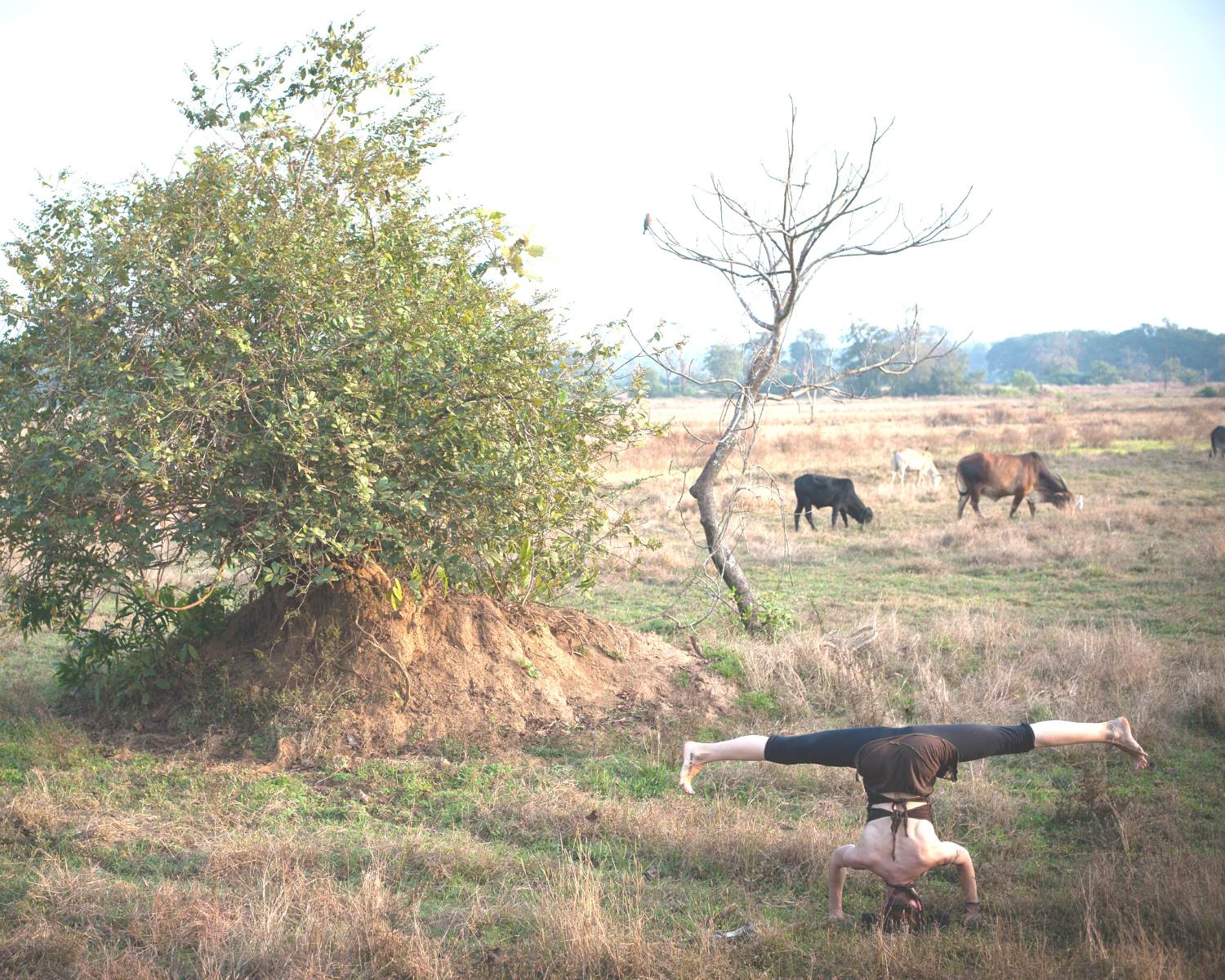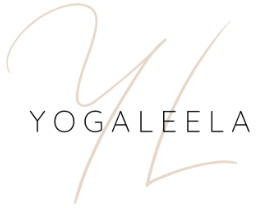Courage is an action, not just a feeling

✨ Courage is an action ✨
How yoga can help us cultivate courage
Have you ever felt fear is holding you back from following your dream? Or even doing things in your everyday life that takes you closer to what’s important to you? Such as speaking in front of other people, asking for help, applying for a new job, trying a new sport, traveling somewhere alone, asking someone out for a date?
”I have to feel confident before I do what matters” (Is that really true?)
There are many books and courses (and Instagram quotes!) that claim you can get instant confidence. You might feel inspired when you read it – in the comfort of your own home – but what happens when we challenge a real-life situation, stepping out of your comfort zone? You probably won’t!
A very useful approach is to see confidence as a verb instead of a feeling: something that you DO: a skill you develop over time! In this blog post we will explore how yoga can serve as a practical tool for cultivating confidence – and above all – learning how to befriend fear.
”Genuine confidence is not the absence of fear:
it is a transformed relationship with fear.”
– Russ Harris
Stepping outside your comfort zone, taking risks, and confronting challenges often triggers discomfort and fear. This is completely normal and doesn’t mean you’re weak! In fact, this is just your brain trying to protect you (more on this in another blog post in which we’ll cover Habits). Fear can give you a lot of energy to help you. What holds people back is not the fear itself. but how they think about and deal with it.
Why do we lack confidence? Usually, it’s a combination of many aspects: high expectations and perfectionism, self-judgment, lack of experience and/or lack of skills. Pause for a moment and have a think: what is usually holding you back?
What it all comes down to is often fear of failure, of not being good enough, of being criticized…
So, let’s take a closer look at fear:
“Fear is not your enemy. It’s a powerful source of energy that can be harnessed and used for your benefit”
– Russ Harris
You will develop TRUE confidence when you learn how to handle your relationship withfear.
Developing true confidence requires work – or rather: committed action.
Another quote by Russ Harris, from his excellent book “The Confidence Gap”
“In ACT, we use the term committed action to mean action that we take guided by our core values: behaving like the person we want to be, and doing what truly matters to us. Only through committed action – stepping out of our comfort zones and doing what truly matters deep in our hearts – will we experience authentic confidence”
How do we know what’s important to us? How do we find our values?
Yoga is an amazing way to start to connect with ourselves and listen inwards. Are your values your own – or what you think you SHOULD focus on? Or are you living a life based on what USED to be important to you – but not anymore?
1. On the Yoga Mat
Yoga encourages us to confront our fears especially when we encounter challenging poses or sequences.
The first step is to acknowledge the fear, which is a feeling, but then, instead of retreating, take action. We move into the pose, and breathe through the discomfort – which might not be physical discomfort (pain is never ok!) but might as well be staying in a long hold in a yin yoga pose – even when we feel restless or agitated.
Keep in mind that courage doesn’t only mean doing fancy stuff such as handstands. It can require just as much courage to back off and do LESS – even when your mind and ego wants you to do more! To listen to your body and be gentle on days you feel exhausted – and rest in child’s pose when the rest of the class is doing arm balances – is a great example of being brave and honouring yourself. That’s what I call an ADVANCED yoga practice! Backing off and doing less because that’s what you need that day!
2. Self-Discovery
Yoga is a path of self-discovery, a journey that invites you to explore who you are – and what’s important to you. It gives us a chance to tune in to where we’re at in life on so many levels. When we’re feeling centered and present, it’s easier to take decisions which resonate with our values.
Also, as you delve into your practice, you develop an inner strength and stability, making it easier to be true to yourself and take actions in your everyday life that might not always be comfortable – but important.
3. Breath as an Invitation to Pause
The breath is central to yoga and serves as a bridge between feeling and action. When you’re in a challenging yoga pose, the breath can help you to stay present. This connection between breath and action is powerful in everyday life too: using your breath to pause when fear shows up – to calm the nervous system and stay centered.
4. Taking Courage Off the Mat
In yoga, as you repeatedly engage with discomfort – whether it’s physical or emotional – you develop not just physical strength but also mental and emotional resilience. This resilience helps you to act courageously in your daily life, staying centered even when fear arises.
The courage cultivated in your yoga practice over time becomes a part of who you are. It infuses your everyday actions and decisions. Whether it’s standing up for your beliefs, taking on new challenges, or embracing change, the courage you cultivate by meeting yourself on your mat empowers you in your everyday life.
Yoga that courage is not just a feeling but a conscious choice to take action in the face of fear. As you embrace discomfort, cultivate resilience, and discover your inner strength on the mat, you learn that courage is a practical, powerful force that drives you to take bold steps in life.
Whether you’re challenging your physical limits, facing emotional fears, or simply committing to live authentically, yoga shows us that courage is, above all, a dynamic, transformative action that defines who we are and what we can become.
Reflection
There are so many things you can do with confidence nowadays – which were once difficult. Tying your shoelaces for example (although I still struggle with that one and cheat!) 😉
How did you learn it? With practice! The more you do something – the easier it gets!
Same with confidence. The more you challenge yourself – without beating yourself up if the outcome isn’t what you wanted – the stronger your “courage muscles” will get.
What has helped me – and many of my clients over the years – is to see fear as a helpful energy. When you feel nervous about something it’s usually because it matters to you – and you can USE that energy to be more focused!
So next time, when you feel a lack of confidence:
Pause. Breathe.
And remember this:
The actions of confidence come first – the feelings of confidence come later!
And for yoga: courage doesn’t necessarily mean doing “fancy poses” – it can also be the opposite: having the courage to back off! I’ll write more about it in my next blog post, focusing on how you can use Courage as a theme in yoga classes. Stay tuned!
Much Love,
Jennie
“It’s not fear that holds people back
– it’s their attitude towards fear that keeps them stuck.”
– Russ Harris
Photo from Goa, India. Photographer: Naiade Plante
